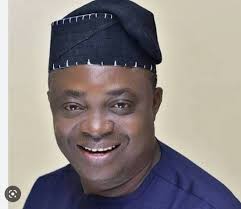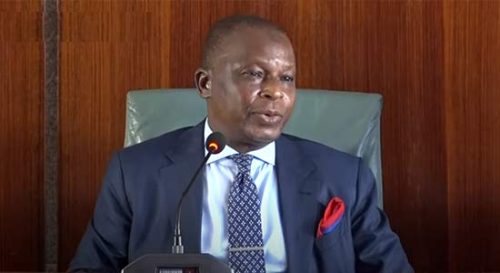‘Why Nigeria should inculcate developmental planning in governance’

By Tunde Shorunke
A public sector reform and governance expert has raised questions on the Federal Government’s model of policy formulation and implementation.
The expert highlighted that the nation’s policies are hurriedly put together and are not really geared towards solving the major fundamental problems, but driven mainly by political considerations instead of social, economic, and fiscal factors; hence, the lack of planning anchored on data.
Hence, he stressed the need for Nigeria to emulate developmental planning in its governance, especially in formulating policies and data gathering should be the government top priority.
In an exclusive interaction with The Daily Times, a developmental economist and Chairman, Board of Amaka Chiwuike-Uba Foundation (ACUF), Dr Chiwuike Uba, emphasised the need for passage of the long-awaited Petroleum Industrial Bill (PIB), adding that the bill will unleash the cloak of secrecy Nigerian National Petroleum Corporation (NNPC) has worn over the years.
He further recommended the scrapping of Petroleum Product Pricing Regulatory (PPPRA) and the need to fully deregulate the industry to promote a competitive market, rather than having only NNPC as the sole importer of petroleum products.
He said that the current structure of Nigeria does not encourage innovation and competitiveness; therefore, there is an urgent need for constitutional amendments to discourage sharing and over-concentration of power at the center to guarantee innovation and competitiveness in the economy.
According to him, “The current Constitution creates and encourages incentives for rent-seeking and elitist capturing, which has led the nation to where it is today.
The country is on its knees while private individuals and corporations are standing tall from what they stole from the country.
The future of the youths and unborn generations are mortgaged by public debts piling up.
Chinese and other loans on the mind! “Nigeria needs an electoral process that encourages intellectualism.
One that enables leaders with intellectual, political, and visionary politics anchored on sound economic thinking to emerge as our leaders.
Money politics and the benefits that accrue to political office holders should be discouraged at all costs. Many have said that our current leaders are somewhat clueless about the drivers of growth.
“Have you ever imagined why the government should be obsessed with an increase in farmlands instead of the yields; selling government properties instead of reducing recurrent expenditures and other pecks of political offices, and borrowing more instead of sincerely fighting corruption and recovering looted funds?
Food for thought! “As painful as the current economic situation is, that is, recession, most of the possible actions of the government to address the issue may have some negative effect somewhere else.
For instance, lowering the interest rate to stimulate the economy may likely fuel higher inflation.
“We are already battling cost-push inflation caused by the recent increases in electricity tariff and fuel pump prices, among other factors.
I commend the Central Bank of Nigeria (CBN) for the new policy on remittances. The policy would increase remittances, thereby, reduce the demand for forex, which, in turn, will help our exchange rate positively.
“Despite the envisaged effects of would-be government policies, in addition to the recommendations, I made above, one of the quick interventions would be to offer tax rebates to individuals and corporations in social sectors to increase their productivity.
In doing this, key performance indicators/ benchmarks must be identified between the government and the organizations prior to the incentives.”
Dr Uba further speaking on deregulation in the Oil & Gas Industry, he said, “Why do we still need the Petroleum Products Pricing Regulatory Agency (PPPRA) in a quasi-deregulated oil sector where the NNPC has assumed the role of fixing the price of fuel pump price?
Why would the government allow NNPC to be the sole importer of petroleum products in a deregulated sector?
“Why is the government still retaining the petroleum equalization funds in the pricing template?
Why is the government still spending billions to run the refineries that are posting losses? What is the government’s policy on manufacturing and other sectors?
As you can see, there are more questions begging for answers. “And this is a reflection of the government’s sincerity to revive and diversify the economy. We are used to writing beautiful documents hurriedly put together that are not really geared towards solving our fundamental problems.
Let me say this, anything built on nothing cannot stand. “Most of Nigeria’s policies are driven mainly by political considerations instead of social, economic, and fiscal considerations; hence, the lack of planning anchored on data.
As a country, can we comfortably speak on the real population of Nigeria? I doubt if we do; because we have never been sincere with our census.
First, due to a lack of development planning, we do not consider our growing population as a factor in the policy and decision-making process.”
Speaking further on Petroleum Industry Bill (PIB), “The Nigerian PIB, like many other matters in Nigeria is shrouded in local politics embedded in ethnicity, religious inclinations, partisanship, among others.
First, the Bill seeks to reform the petroleum industry by introducing transparency and accountability.
“When the bill is passed into law, it will not only remove the cloak of secrecy NNPC has worn over the years but also address some of the conflicts in the Niger Delta, among other things.
Do not forget that the NNPC is the cash cow to many people, including the government.
Many have also alleged the sector (NNPC) as the cesspool of corruption in Nigeria. You can now imagine some of the reasons it has remained difficult to pass the Petroleum Industry Bill despite all efforts.
“Gas flaring has remained in Nigeria over the years with its attendant health implications as a result of pollution and the huge loss of revenue to the government, directly and indirectly.
Honestly, I will be one of the happiest Nigerians if and only if the PIB is eventually passed and signed into law.
It will not reform the chaotic oil industry but change a lot of other things in Nigeria. “Almost all the measures needed in the oil and gas sector are captured in the PIB.
READ ALSO: 2023: APC’s commitment to good governance will help defeat PDP, retain presidency — Fashola
Though, subject to further review and amendments. Nevertheless, it makes no sense to retain a non-functioning, low performing, and resource-draining government institutions.
“To this end, I would like to see the scrapping of the PPPRA, the restructuring of the refineries wherein Nigerians are given the opportunity to buy back the companies and manage them by themselves through a management team outside the government.
Alternatively, it could be a joint venture between the government and the citizens where the citizens shall hold the controlling shares and the management.
“Finally, I will encourage the full deregulation of the sector to allow private participation in the industry.
The NNPC is currently the only importer with unfettered access to forex. If the current approach continues, the market would continue to be uncompetitive and unattractive as a result of the dominant position of NNPC.
If the President is sincere about reforms in the sector, I will encourage him to accent the PIB, as soon as the NASS passes the law. Nigeria will be better. It is our country,” he added.










